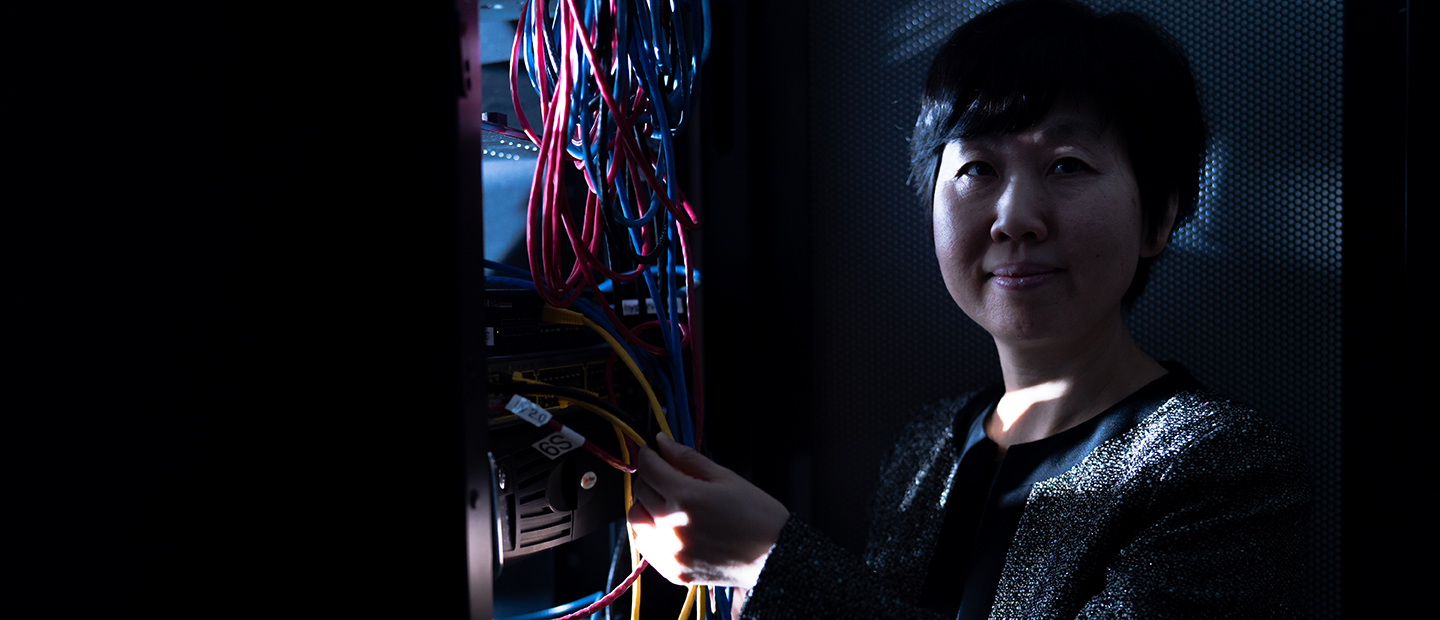
Cybersecurity
Our Master of Science in Cyber Security (MSC) program is designed to provide a comprehensive foundation in the field of information security. Students gain detailed technical knowledge in areas such as computer security, network security, software security, and more, while also exploring the social, policy, ethical, and legal aspects of security and privacy.
The MSC program offers two distinct tracks to align with different career goals:
- Research Track: Focuses on advanced research methodologies and prepares students for academic or research-oriented careers in cyber security.
- Professional Track: Emphasizes practical skills and industry application, preparing students for high-level positions in the cyber security field.
Our program is offered in collaboration with Oakland's School of Business Administration, ensuring a multidisciplinary approach that integrates technical expertise with business insights. This partnership enhances the learning experience and prepares graduates for success in both technical and managerial roles within the cyber security domain.
Program OverviewCourse RequirementsContact:
Huirong Fu, Ph.D.
Professor and Program Coordinator
Office: EC 528
(248) 370-4456
[email protected]
The overall goal of the MSC program is to provide students with the background knowledge in theory and practice to understand current cyber security threats, but more importantly to be able to understand, adapt, and develop new techniques to confront emerging threats. The research component of the MSC embodied in the culminating thesis requires students to expand beyond state-of-the-art technique by exploring new and creative approaches to address emerging threats.
The MSC degree is a natural continuation of studies for students who have received a baccalaureate in computer science, information technology, computer engineering, electrical engineering, information systems, mathematics, software engineering, or a related technical area, and are interested in furthering their knowledge in cyber security.
The program requires a total of 32 semester hours: 16 semester hours of foundation and core courses, 16 semester hours of depth course work, which optionally includes a master's thesis.
Core courses in computer network security, host computer security, and information security provide the theoretical basis for understanding the source of vulnerabilities in computation and information systems. The courses also expose students to state-of-the-art tools and techniques for identifying threats related to networking infrastructure, computer systems and the data and information flowing through the system.
With this broad theoretical foundation, students can select courses from domain areas that provide both depth and breadth of coverage across a wide variety of topics in cyber security. The curriculum for the MSC program blends contemporary knowledge with advanced research concepts to deliver a cutting-edge program.
In today’s digital landscape, the importance of cybersecurity has never been greater. As businesses and organizations increasingly rely on technology to operate, the demand for skilled cybersecurity professionals continues to soar. Here are several key reasons why cybersecurity jobs are in high demand:
1. Growing Cyber Threats
With the rise of sophisticated cyberattacks, organizations are more vulnerable than ever. As these threats evolve, companies need expert cybersecurity professionals to safeguard their sensitive information and systems.
2. Increased Regulatory Compliance
Governments and regulatory bodies worldwide are implementing stricter data protection laws and regulations, such as the GDPR and CCPA. Organizations must comply with these regulations to avoid hefty fines and legal repercussions. This compliance requires dedicated cybersecurity teams to develop and maintain robust security protocols.
3. Digital Transformation
As organizations undergo digital transformation, the number of connected devices and systems continues to grow. This increase in technology adoption, from cloud services to the Internet of Things (IoT), creates more entry points for cyber threats. Cybersecurity professionals are essential in ensuring that these technologies are deployed securely.
4. Shortage of Skilled Professionals
The cybersecurity workforce is currently facing a significant skills gap. According to various industry reports, there are far more cybersecurity job openings than qualified candidates to fill them. This shortage highlights the urgent need for education and training programs to equip the next generation of cybersecurity experts.
Our master’s in cyber security can serve as a foundation for almost any cyber security career specialty. Possibilities include:
- Network engineering
- Investigation
- Threat assessment
- Incident response
- Research
- Mobile communications
- Data encryption
.
School of Engineering and Computer Science
115 Library Drive
Rochester , MI 48309-447
(location map)
Dean's Office (248) 370-2217
Academic Advising (248) 370-2201
[email protected]